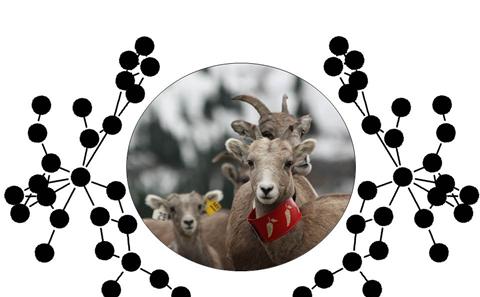Toward the Eco-Evolutionary Dynamics of Social Behaviour: Revisiting the Chitty Hypothesis Seminar

- Time:
- 13:00 - 14:00
- Date:
- 25 March 2014
- Venue:
- B7/3027
For more information regarding this seminar, please telephone Kim Lipscombe on 02380 597747 or email K.R.Lipscombe@soton.ac.uk .
Event details
The concept of eco-evolutionary dynamics has its conceptual origins in the Chitty's Hypothesis (ca. 1960): animals will have a form of behaviour that prevents unlimited population growth; this behaviour will be heritable; and selection for or against this behaviour will be phase-dependent and thus can affect population growth rate.
We will first explore the historical context of the Chitty Hypothesis to understand why it had been largely dismissed. Subsequently, we will highlight an increasing number of eco-evolutionary studies that are illustrating either feedbacks or simultaneous correlations between changing ecological and evolutionary quantities. With this foundation, it is now timely to investigate the role behaviour may be having in eco-evolutionary dynamics.
Using social network data from a long-term study of bighorn sheep we will work toward testing whether social behaviour can affect population growth: first by illustrating how social behaviour affects fitness in bighorn; and then by partitioning genetic and environmental influences that affect the heritability of social behaviour. Finally we will work through a thought experiment that outlines ongoing work to link social behaviour to population dynamics.
Speaker information
Eric Vander Wall, Université de Sherbrooke, Canada